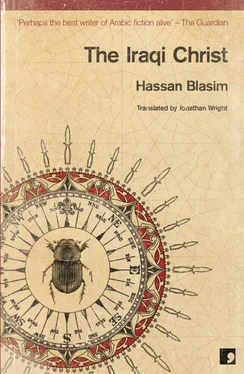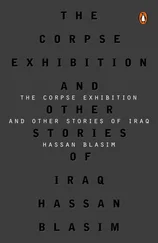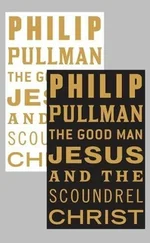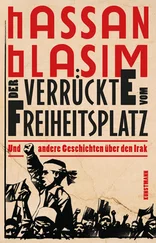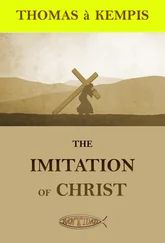The tears and the thirty seconds were the common denominator between us all when it came to making knives disappear and reappear. As I said, were it not for Souad the knives would have disappeared for ever and we would all have been like Allawi before he joined us — just a knife thief. Salih the butcher faced the same problem before he met Jaafar and Souad. Salih loved the trick: in his shop he would stare at knives at length until they disappeared. But after the trick he had to buy new knives. Allawi made money in the market from his gift while Salih would lose out. If it wasn’t for Souad, he said, he would have died of hunger. Every day Souad brought back the knives he had made disappear, and we were sure this was the only reason the butcher stayed with us all those years.
We were constantly on the lookout for a new member of the group with powers like those of Souad. We would meet every Thursday and make a set of knives disappear and Souad would make them reappear in the same way: tears and a few seconds!
I could make knives disappear easily. I began by making my mother’s knives disappear in the kitchen when I was a child. In the beginning my mother would almost go crazy, but when she discovered my secret she and my father took me to a cleric to consult him on the subject. The man with the turban told them in all confidence: ‘Your son is in league with the djinn.’ He advised my father and mother to pray and wash the courtyard of the house twice — once at dawn and again at sunset. When I got interested in football and met Jaafar I stopped making knives disappear at home or at the homes of friends and relatives.
The knife trick didn’t have a particular purpose. Maybe Salih the butcher saw his gift as a disease and as far as he was concerned Souad was the only cure. The feelings and ideas that Souad, Jaafar, Allawi and I had were different to some extent. Jaafar thought it was a secret and sacred vocation and believed that what we did, despite the absurdity of it, was a source of great pleasure, especially as he saw himself as the spiritual father and the leader of the group.
Allawi was addicted to the game. It was like a drug that erased his memory of the painful loss of both his parents at an early age. His father had been a drunkard who argued with the neighbours and who killed a man with his pistol. Before the police arrived one of the dead man’s sons, who had seen his father drowning in blood, came to the door of Allawi’s father’s house with a Kalashnikov in his hand. Allawi’s father was standing behind the closed door with the pistol in his hand and his mother was trying to stop him going out. The son emptied a whole magazine of bullets into the door. The door fell in and Allawi’s mother and father were killed.
Knives were my pastime and part of my life. Seeking the mystery of the game, I felt like someone looking for a single rare flower on a high mountain range. Often it felt like an adventure in a fable. Many a time I felt as though I was doing a spiritual exercise with the knife trick. The reality didn’t interest me as much as the beauty of the mystery attracted me. Maybe this is what drove me to write poetry after I gave up looking for the meaning of the knives.
Illiteracy was one of the obstacles that compounded our failure to understand the trick or even to develop our skills throughout the years. Salih the butcher, Allawi and Jaafar couldn’t read or write. It’s true that Souad was educated but she practised the knife trick with a childish attitude. She would always remind me, saying: ‘Why complicate things, my love? Life is short and we are alive. Treat the knives as a game to entertain us and leave it at that.’ Souad repeatedly suggested we open a little theatre in the neighbourhood to amuse the local people by making knives disappear and then reappear, in the hope that this might relieve the gloom of war and the endless killing. But Jaafar was worried about the clerics, because they were acting like militias at the time. I thought he was right to worry; at any moment they could have denounced us as infidels, maybe even accused us of undermining society with alien superstitions imported from abroad. Their superstitions had become the law, and God had become a sword for cutting off people’s heads and declaring them infidels.
My ignorance increased when I embarked on the task of researching the knife trick through reading. My education didn’t help me much. It was religious books that I first examined to find references to the trick. Most of the houses in our sector and around had a handful of books and other publications, primarily the Quran, the sayings of the Prophet, stories about Heaven and Hell, and texts about prophets and infidels. It’s true I found many references to knives in these books but they struck me as just laughable. They only had knives for jihad, for treachery, for torture and terror. Swords and blood. Symbols of desert battles and the battles of the future. Victory banners stamped with the name of God, and knives of war.
After that I moved into works of literature. That was by chance. A single sentence had stirred up a whirlwind of excitement inside me. Then one day, in a café, I came across an article in a local newspaper about a massacre by sectarian fighters in a village south of the capital. They had set fire to the houses of people sleeping at night. The only survivor of the conflagration was a young boy. The boy was purple and in his hand he held a purple rat. They found him asleep in a wheat field. His story went unnoticed in the relentless daily cycle of bloody violence in the country. In the culture section of the newspaper there was an interview with an Iraqi poet in exile who said, ‘A closed door: that’s the definition of existence.’
The next day I went to Mutanabbi Street, where books are sold. I wasn’t a regular visitor. I was terrified by the sight of the stacks of books there, in the bookshop windows, in the stalls in the street and on the wooden carts. Hundreds of titles and covers. I couldn’t buy a single book that day. I didn’t know what to choose or where to begin. I went back to Mutanabbi Street every Friday and gradually regained my confidence. I started to buy books of poetry, novels and short stories, local and translated. Then our group decided to contribute some money to help me buy more books, in the hope that I would come across the key to the mystery of the knives, and soon the house was full of books. We made shelves in the pigeon loft, the kitchen and even in the bathroom. After a year of voracious reading I was no longer drawn to research into the mystery of the knives, but to the pleasures of knowledge and reading generally. The magic of words was like rain that quenched the thirst in my soul, and for me life became an idea and a dream: the idea was a ball and the dream was two tennis racquets. I didn’t understand many of the books on classical philosophy. But enjoyable and interesting intellectual books on dreams, the universe and time began to attract my attention. I felt this created a problem with the group. They would shower me with questions on what I was reading and whether I had come across any clues to the mystery of the knives in my books. I didn’t know how to explain things to them. I was like a small animal that had entered the den of an enormous animal. I felt both pleasure and excitement. Perhaps I was lost, and my only compass was my passion and my fear of the diversity of life. One idea invalidated another and one concept disguised another. One theory made another theory more mysterious. One feeling contested another. One book mocked another book. One poem overshadowed another poem. One ladder went up and another went down. Often knowledge struck me as similar to the knife trick: just a mysterious absurdity or merely a pleasant game.
I tried to explain to the group that research into knives through books wasn’t easy. It was a complicated process and certain things might take me many more years to understand. On the other hand I didn’t want to disappoint the group, especially Jaafar, who was enthusiastic about the books. So I started telling them stories about other extraordinary things that happen in this world and about man’s hidden powers. I tried to simplify for them my modest knowledge of parapsychology, dreams and the mysteries of the universe and of nature. I felt that we were getting lost together, further and further, in the labyrinths of this world, without sails and without a compass.
Читать дальше
